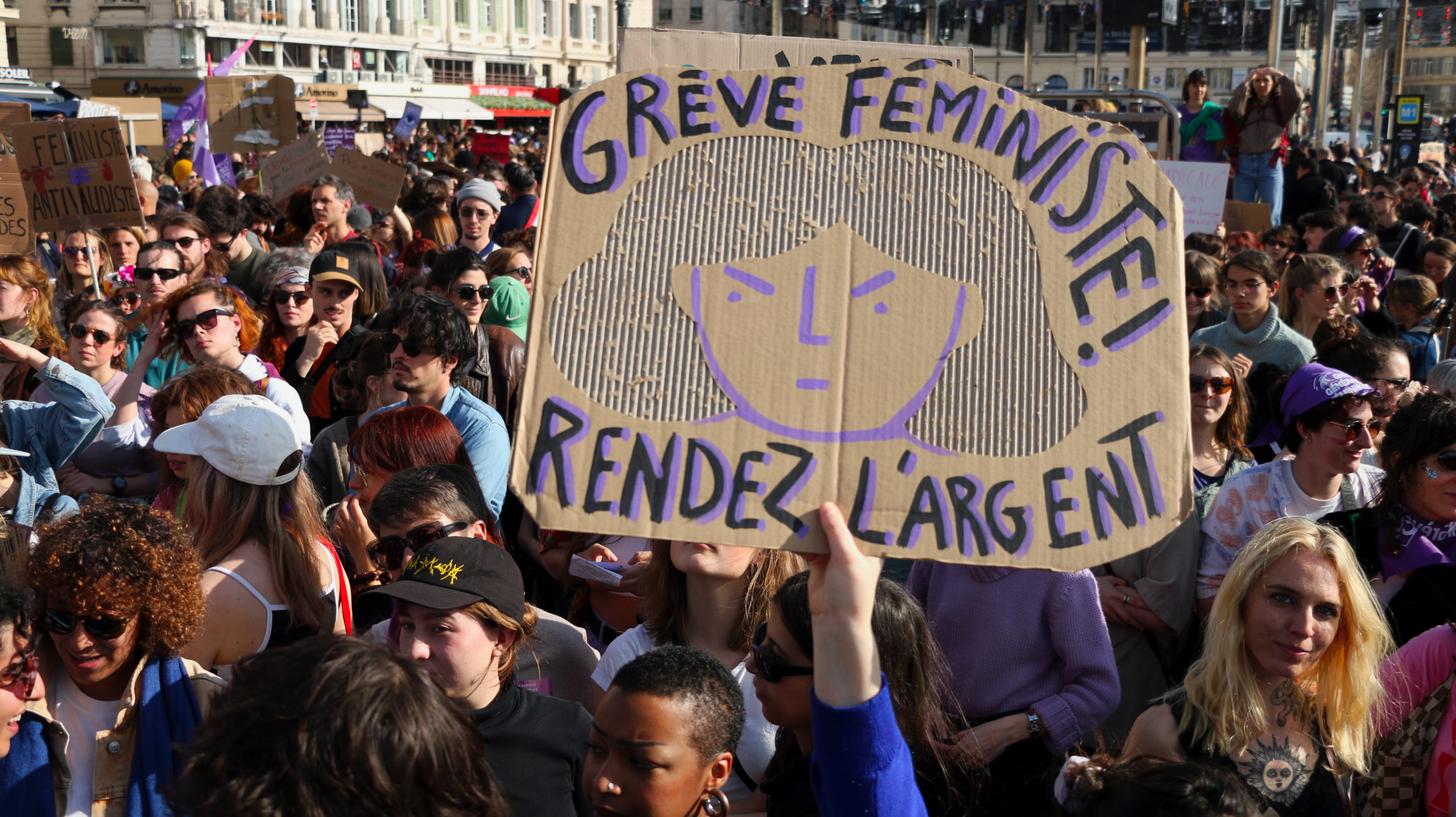This post is also available in: Français (French) العربية (Arabic)
It’s 1 PM when, just a stone’s throw from the very virile Vieux-Port of sailors and other dockers, a strange, glittery choir is singing its repertoire. We’re not in the Saint-Ferréol church, but on the premises of Marseille’s young LGBTQIA+ center: “Boohoo, we can’t do anything anymore. Boohoo, it’s such a big deal. Boohoo, how sad. Boohoo, we can’t pinch asses anymore. Except for Catherine Deneuve’s…” This sarcastic tune, called Boohoo, is part of the repertoire of the feminist collective Les Rascasses. Here, there’s no boo-hooing, no not all men, but an abundance of sisterhood in preparation for the March 8 march starting in just over an hour. In addition to learning a feminist song, the Nous Toustes Marseille collective is offering a number of workshops: a discussion between queer authors, short film screenings, and a sign and badge workshop.
Diane from the Nous Toustes Marseille collective reminds us of the importance of coming together in numbers today. “Our anger allows us to tap into feminist energy. We also instill this in people outside of activism, because it’s okay to not be an activist as long as you carry the flame inside you and make sure it blows in the right place.” With the rise of fascism and various conservative and traditionalist movements in France and Europe, the patriarchal model is regaining strength.
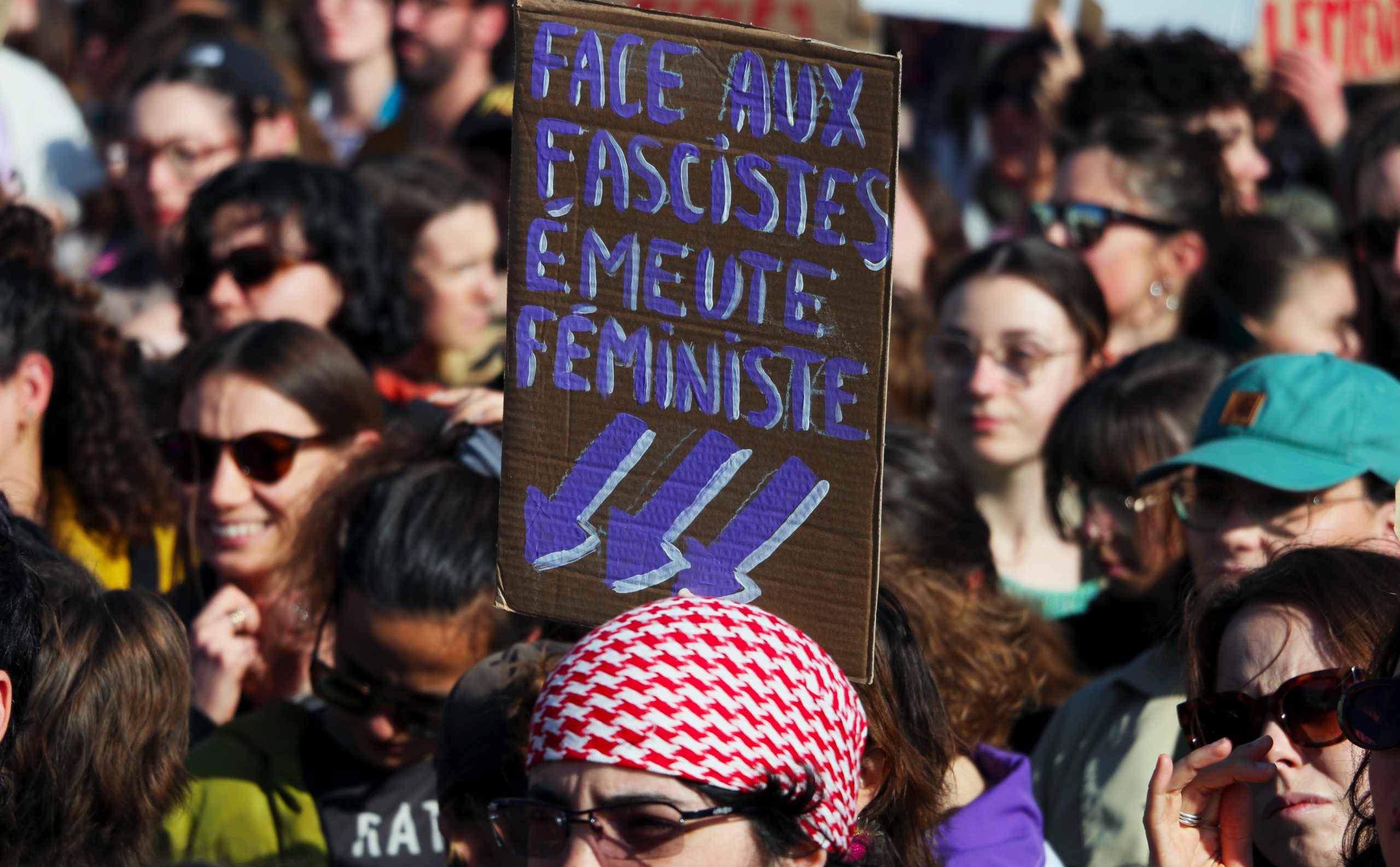
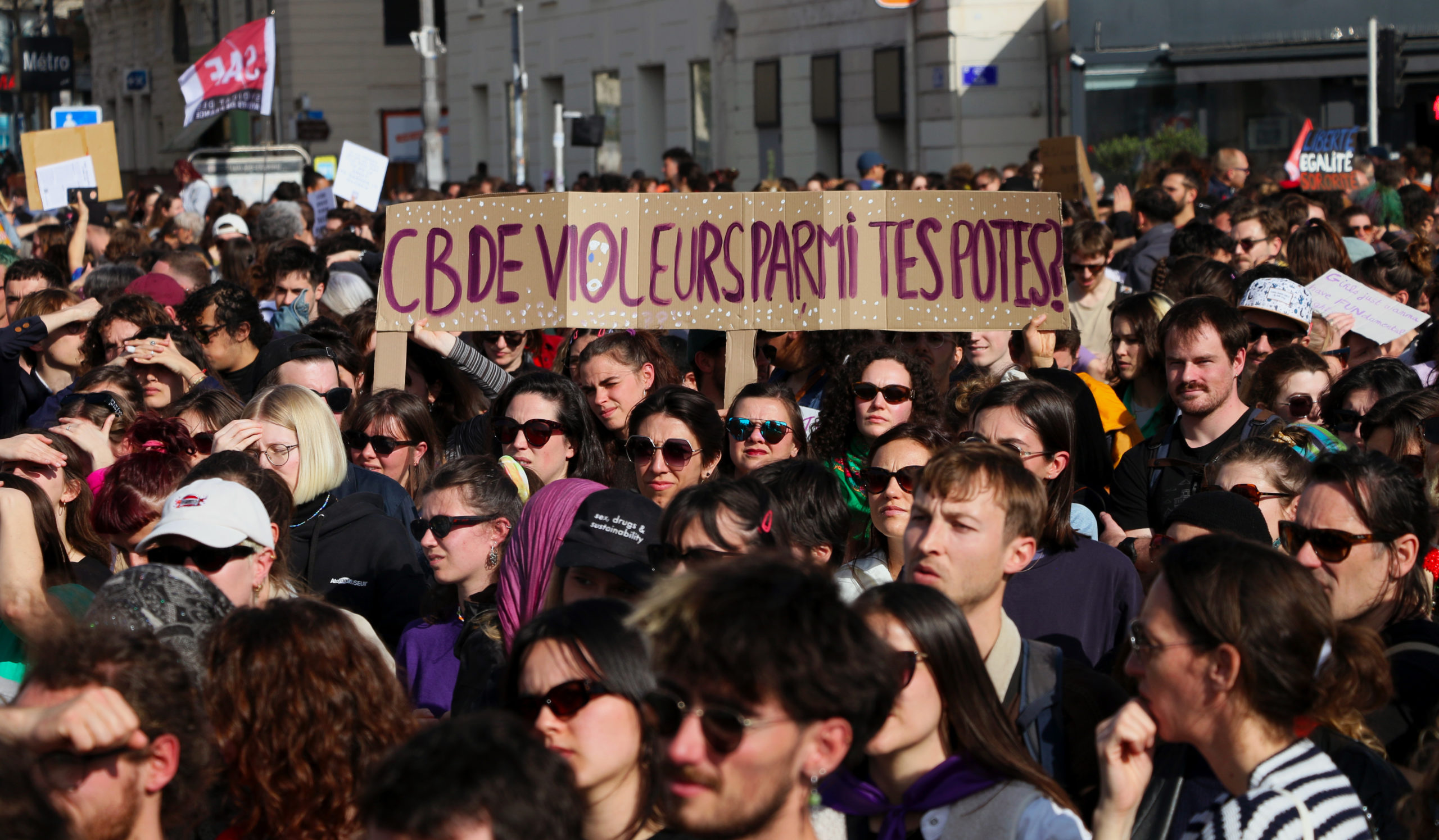
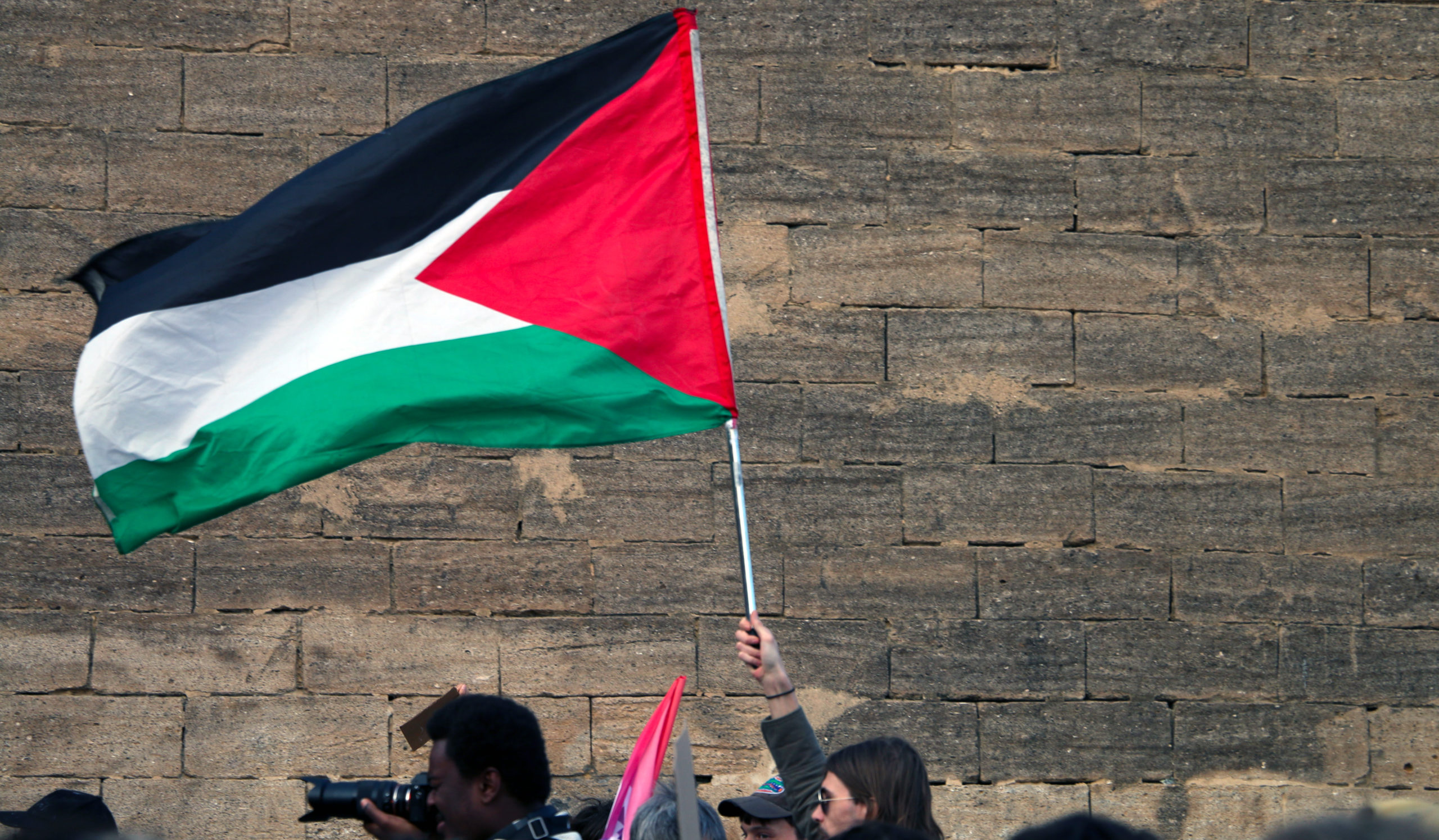
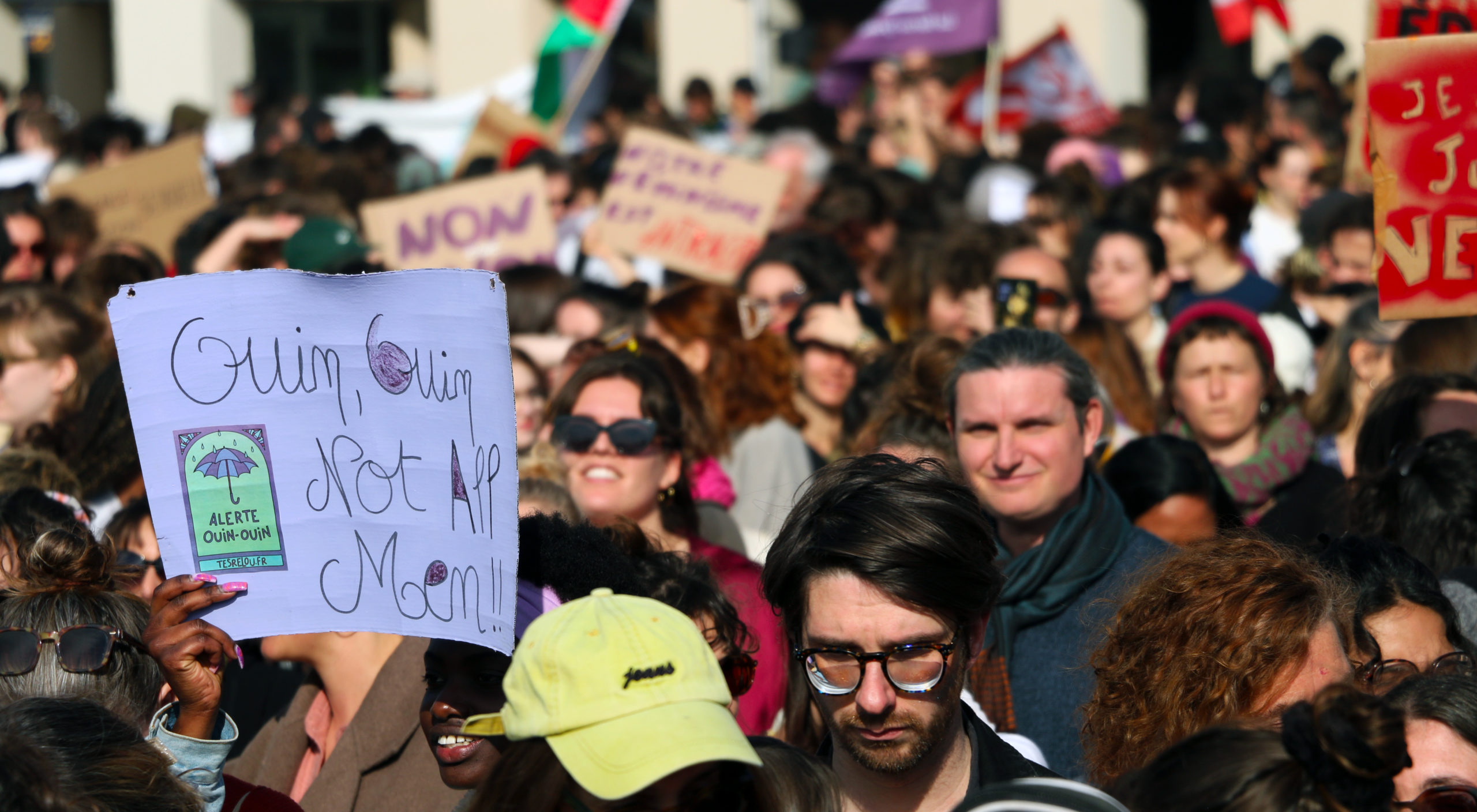
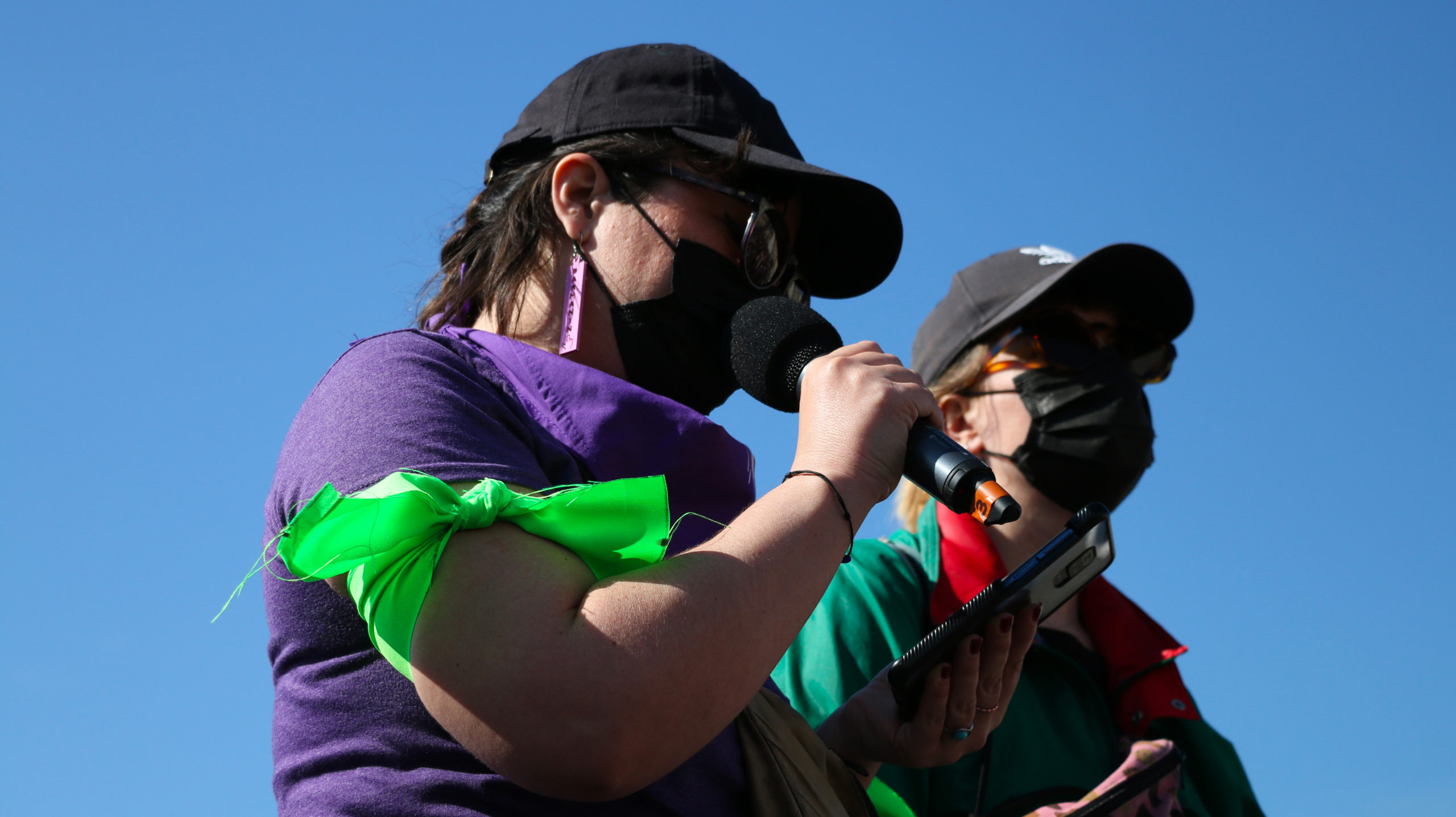
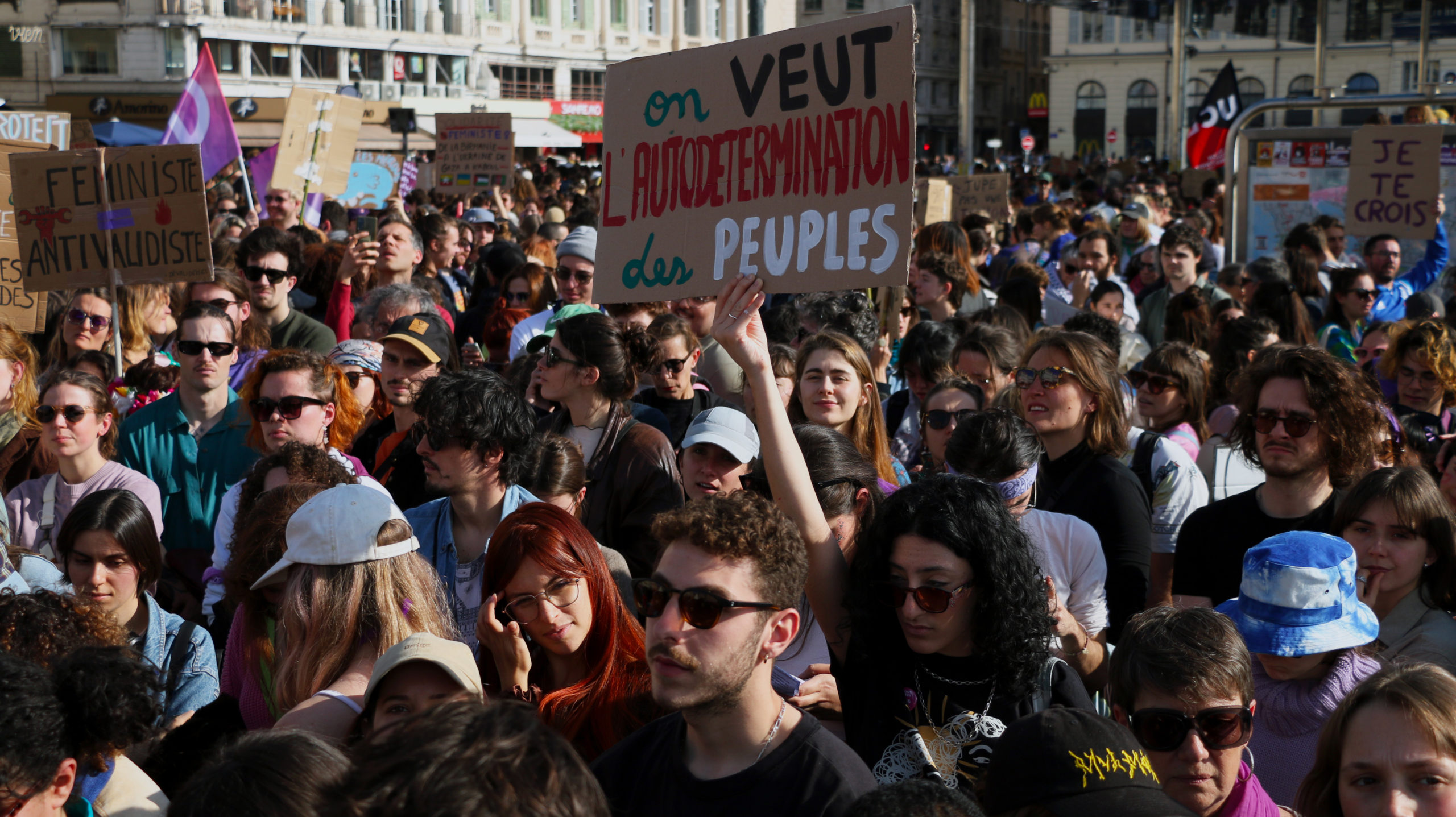
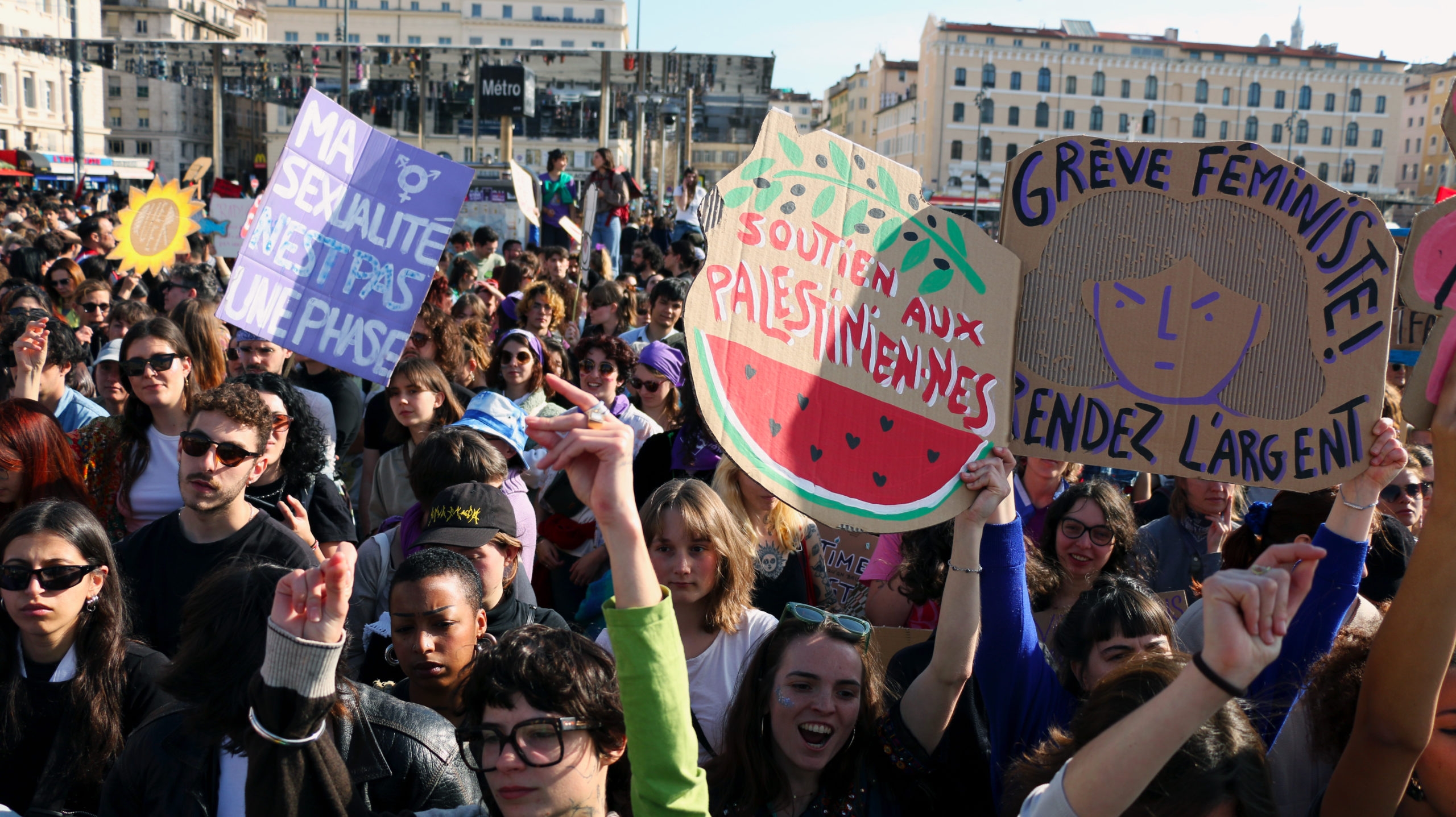
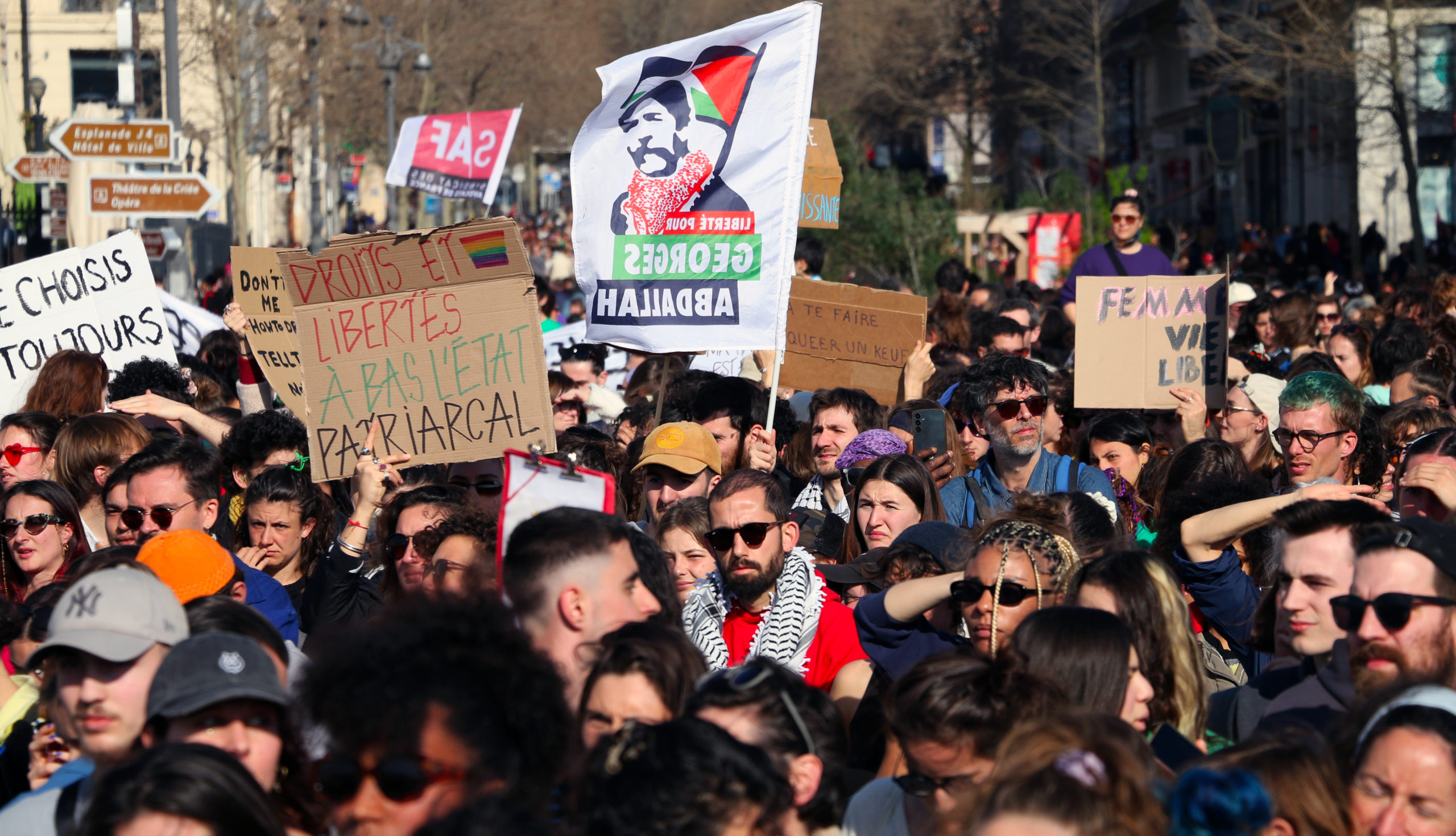

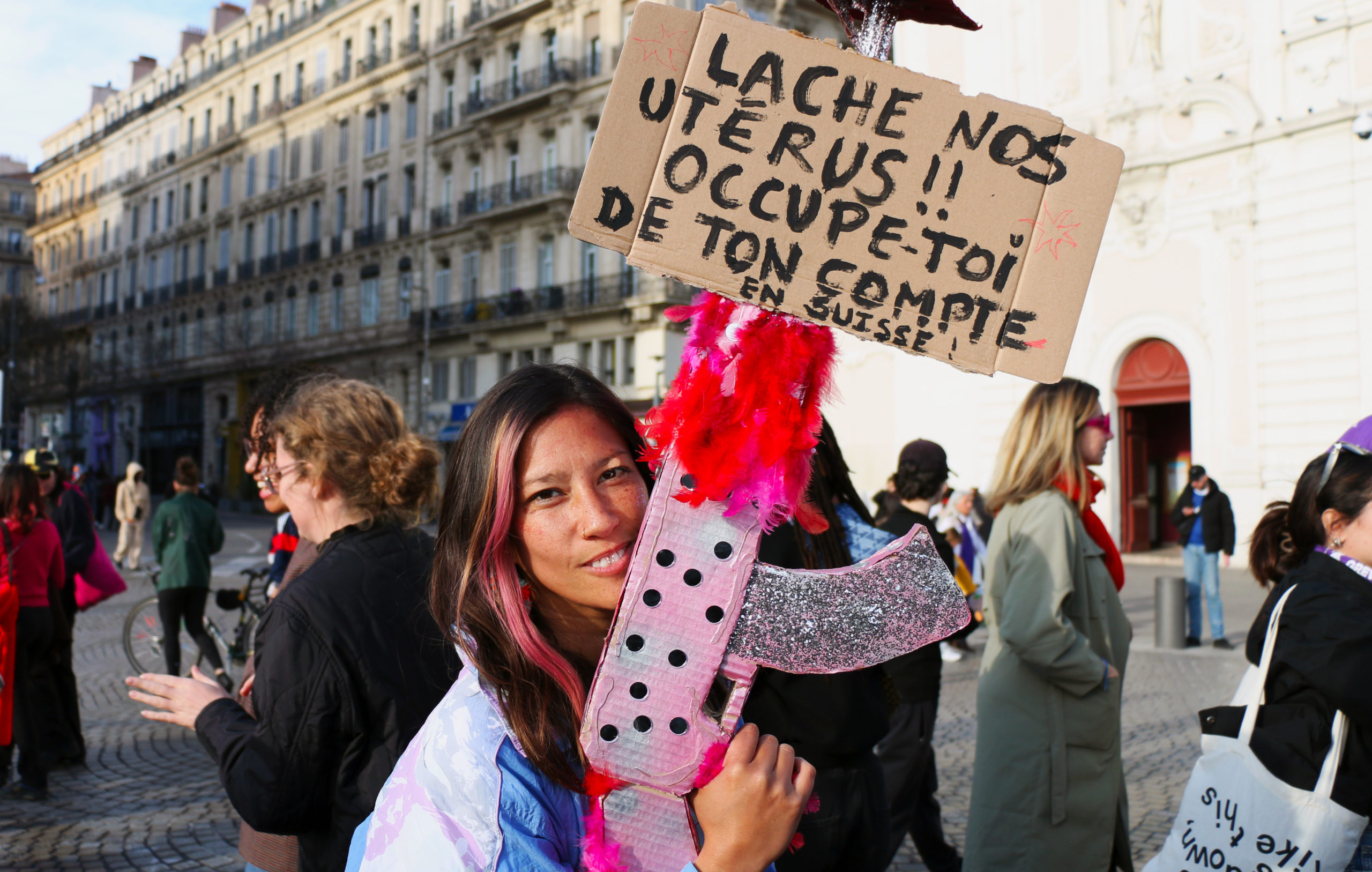
Unite to resist the rise of fascism
The previous evening, a spontaneous radical feminist demonstration had brought people together to take over public space at night. It also came in support of the feminist night march organized by the AG Féministe Paris-Banlieue and other anti-racist and decolonial collectives, which had been banned in Paris by Prefect of Police Laurent Nuñez. The ban was lifted at the last minute, but this repressive climate worries activists. For Diane, the previous day’s march was essential, but all these actions are complementary. “We’re proposing this at the center today because it allows for a different kind of accessibility. I think it’s very important to diversify the ways we fight,” they say in the midst of the restless youth, a little emboldened by the outpouring of glitter and revolutionary chants.
Faced with the political urgency, Marseille’s feminist collectives have been operating inter-organizationally since November 23, 2023, the day against feminicide, sexual violence, and all forms of gender-based violence. This union around the M8M (Marseille 8 Mars - AG Féministe) is based on the exchange of best practices, the convergence of struggles, and intersectionality.
So when the clock struck 2:30 PM at the Old Port, M8M launched its feminist strike: “With this strike, we are demanding higher wages and higher incomes across the board. We women are the majority in underpaid, arduous, part-time, and fragmented jobs. We are the first victims of all the counter-reforms that undermine our social rights.” Facing the stage, the crowd, speckled with purple—a color symbolic of feminist struggle—stretched from the Old Port to the first part of La Canebière.
“Our anger allows us to tap into feminist energy. We also instill this in people outside of activism, because it’s okay to not be an activist as long as you carry the flame inside you and make sure it blows in the right place.”
A feminist occupation zone at the root of anti-patriarchal struggles
According to the organizers’ estimates, the demonstration brought together 12,000 people. They all converged on Place de la Joliette to form the ZOF, the feminist occupation zone. In this zone, people not only reflected but rested, too. In the midst of association stands, debates, speeches, and zine sales, a day-care area was set up for children to play under supervision, without having parents involved in the struggle get overworked. Right next door, Etienne and some of his allies even brought food after spending the afternoon cooking. “We decided on this initiative 10 days ago. Our goal was to relieve people so they could take part in the protest,” he explained.
The spot chosen for the demonstration was not made at random: it is surrounded by BNP Paribas, a financier of the Israeli defense company Elbit Systems, and the German consulate, Europe’s leading arms supplier to Israel. The port of La Joliette is also home to Danish shipping giant Maersk, one of the world’s leading maritime transport companies accused of shipping arms to Israel. For Salomé, an activist with the M8M inter-organization, the location is highly symbolic: “We defend a feminism against weapons and war, and we know that women are the first to be killed among civilian victims. We defend a feminism that supports the self-determination of peoples, and we stand against imperialism and against the genocide in Palestine.”
Faced with the recurring reappropriation of feminism for racist ends, the various collectives are keen to remind us where struggles come from and to whom they belong. The sun sets on the ZOF and, like a sermon, a voice rises to repeat the original slogan of the Iranian anti-patriarchal struggle: “To their madness, there is only one response: Women, Life, Freedom. Jin, Jiyan, Azadî.”
This investigation was carried out with the support of the AGEE - Alliance for Gender Equality in Europe.



























